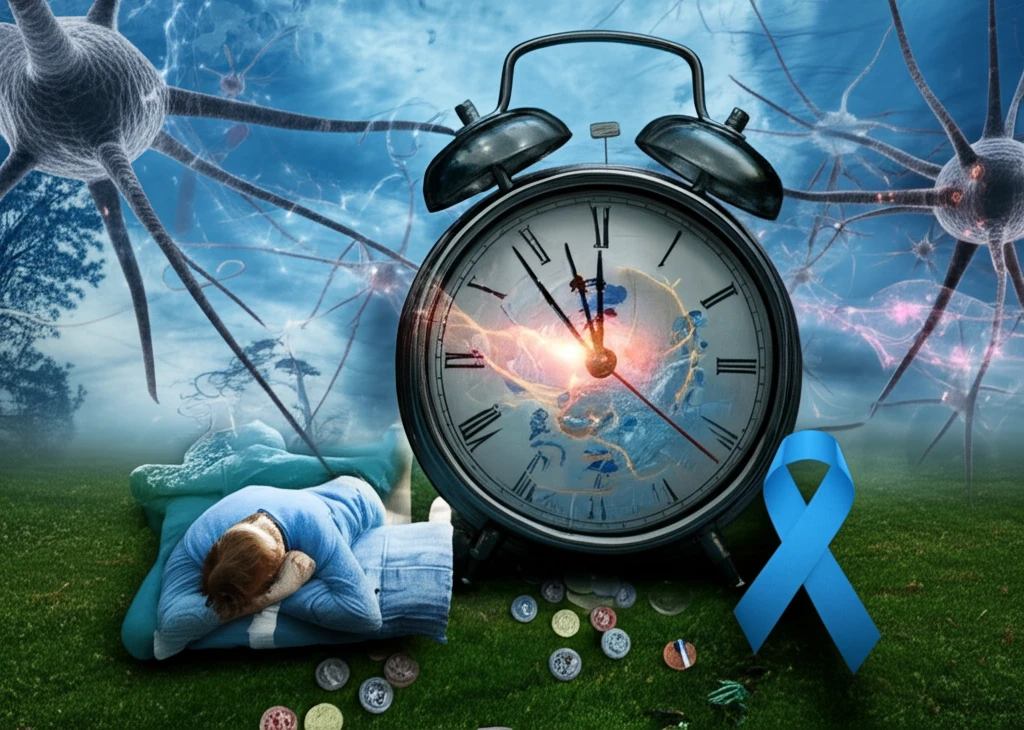
Snooze or Lose: Unmasking Excessive Sleepiness in Parkinson's Patients
"Discover the hidden factors behind why Parkinson's disease patients struggle with daytime sleepiness and what you can do about it."
Parkinson's disease (PD) is often recognized for its motor symptoms like tremors and stiffness, but the non-motor symptoms, such as sleep disturbances, can significantly impact a patient's quality of life. Among these, excessive daytime sleepiness (EDS) stands out, affecting a substantial proportion of individuals living with PD.
EDS isn't just feeling a little tired; it's a persistent and overwhelming sense of sleepiness that can interfere with daily activities, concentration, and overall well-being. Studies suggest that up to 60% of people with Parkinson's experience EDS, making it a critical area of concern for both patients and healthcare providers.
While factors like disease severity, medication side effects, and disrupted nighttime sleep have long been associated with EDS in PD, recent research is unveiling a more complex picture. This article delves into a study that uncovers surprising links between psychiatric conditions, specific medications, and excessive daytime sleepiness, offering new insights into managing this challenging symptom.
Unveiling the Unexpected Culprits Behind Daytime Sleepiness

A recent study published in Neurological Research investigated the factors contributing to EDS in a group of 88 Parkinson's disease patients. Unlike previous research that primarily focused on motor symptoms and medication dosages, this study took a comprehensive approach, examining a range of clinical, psychiatric, and sleep-related variables.
- Psychotic Disorders: A strong association between psychotic symptoms and EDS.
- Anxiety Disorders: Increased likelihood of EDS in patients with anxiety.
- Dopaminergic Agonists: A surprising link between these medications and daytime sleepiness.
The Road Ahead: Comprehensive Care for Parkinson's and Sleep
This research underscores the importance of a holistic approach to managing Parkinson's disease. Addressing excessive daytime sleepiness requires more than just adjusting medication dosages; it necessitates a comprehensive assessment of a patient's psychiatric well-being and sleep patterns. Further research into the neurochemical mechanisms underlying EDS in Parkinson's is crucial to develop targeted therapies that can improve the quality of life for individuals living with this challenging condition.
